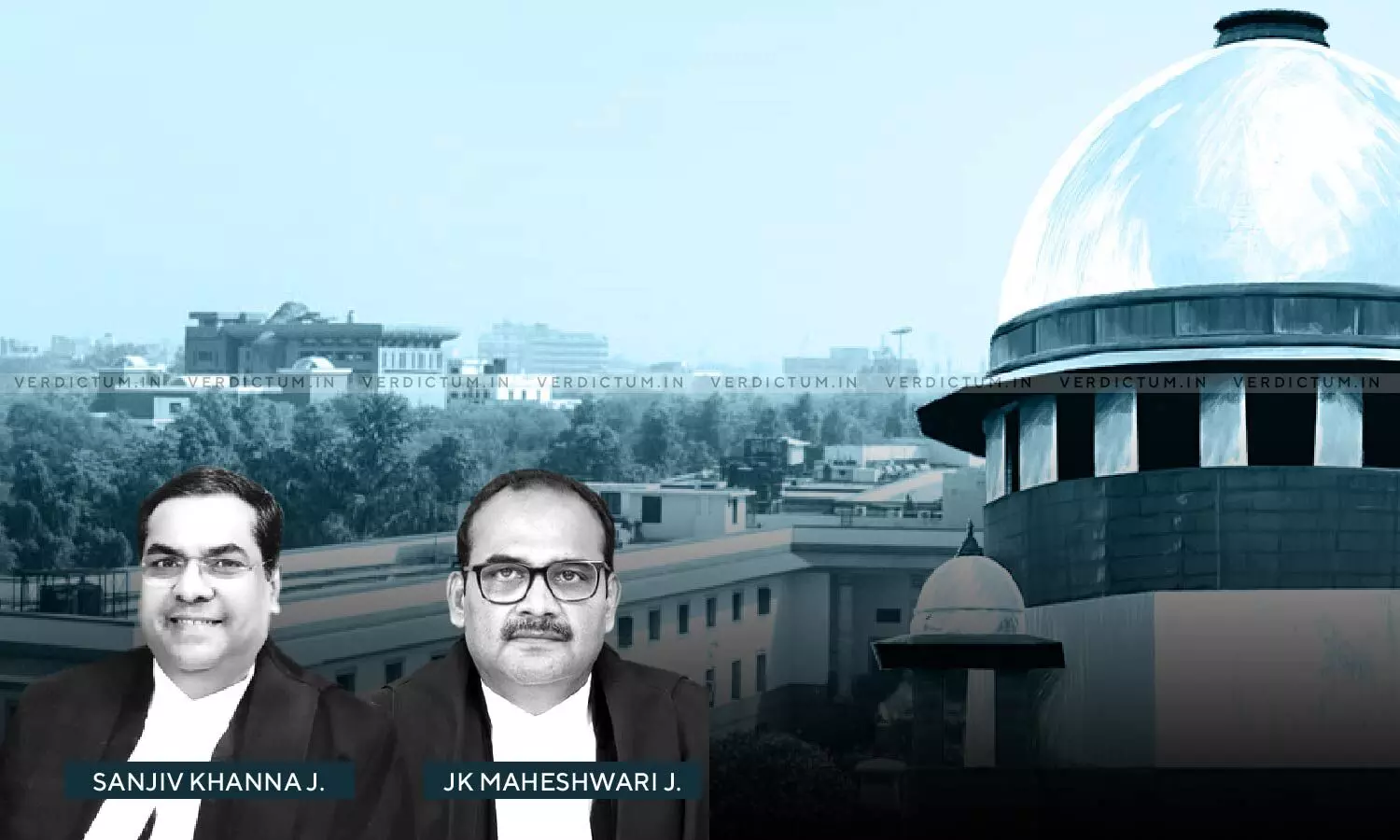
Police Officers Are Not Required To Do Moral Policing: Supreme Court
 |
|The Supreme Court has observed in a judgment that police officers are not required to do moral policing, while upholding the order of the disciplinary authority for the removal of a CISF (Central Industrial Security Force) Constable from service.
A Bench comprising Justice Sanjiv Khanna and Justice JK Maheshwari set aside the decision of the High Court of Gujarat by which it has allowed the writ petition of CISF Constable Santosh Kumar Pandey and directed his reinstatement in service with 50 percent back wages from the date of his removal.
Pandey, who was working as a constable with the CISF, was posted at the Greenbelt Area of the IPCL Township, Vadodara, where he was charge-sheeted vide memorandum of October, 2001 on allegations of misconduct.
As per the charge sheet, when Pandey was posted as a Constable on night duty the complainant and his fiancée had passed through the area on motorcycle and were stopped in the corner. Pandey taking advantage, allegedly told the complainant that he would like to spend some time with his fiancée.
The complainant protested and did not agree and Pandey had asked the complainant to give something to allow them to go and the complainant gave him the watch he was wearing. On the next day, the complainant reported the incident to senior officials, which led to an inquiry against Pandey. The disciplinary authority agreed that the charges against Pandey were proved and his services were terminated.
The High Court allowed the plea of the Constable challenging termination order and the enquiry report. The Apex Court said that in its opinion the reasoning given by the High Court is faulty on both facts and law.
The Supreme Court said that it has reservations regarding the reasoning given by the High Court as judicial review is not akin to adjudication on adequacy or inadequacy of evidence, and added "Power of the High Court under Articles 226 and 227 of the Constitution of India enables exercise of judicial review to correct errors of law, including procedural law, leading to manifest injustice or violation of principles of fairness, without normally venturing into reappreciation of evidence."
The Supreme ruled that the conclusions of fact, which are based upon evaluation and appreciation of evidence, when meticulously reached by the authorities, should not be interfered with merely because the court may have reached at a different conclusion.
"On the question of proportionality of punishment, we have to observe that the facts in the present case are startling and distressing. Respondent No. 1 – Santosh Kumar Pandey is not a police officer, and even police officers are not required to do moral policing, ask for physical favour or material goods", it said.
The Supreme Court allowed the appeal preferred by the CISF and set aside the judgment rendered by the Gujarat High Court and held "Accordingly, Special Civil Application No. 13718 of 2004 filed by Respondent No. 1 – Santosh Kumar Pandey before the High Court will be treated as dismissed. The order of removal from service passed by the disciplinary authority is upheld."
Cause Title- CISF & Ors v. Santosh Kumar Pandey
Click here to download/read Judgment